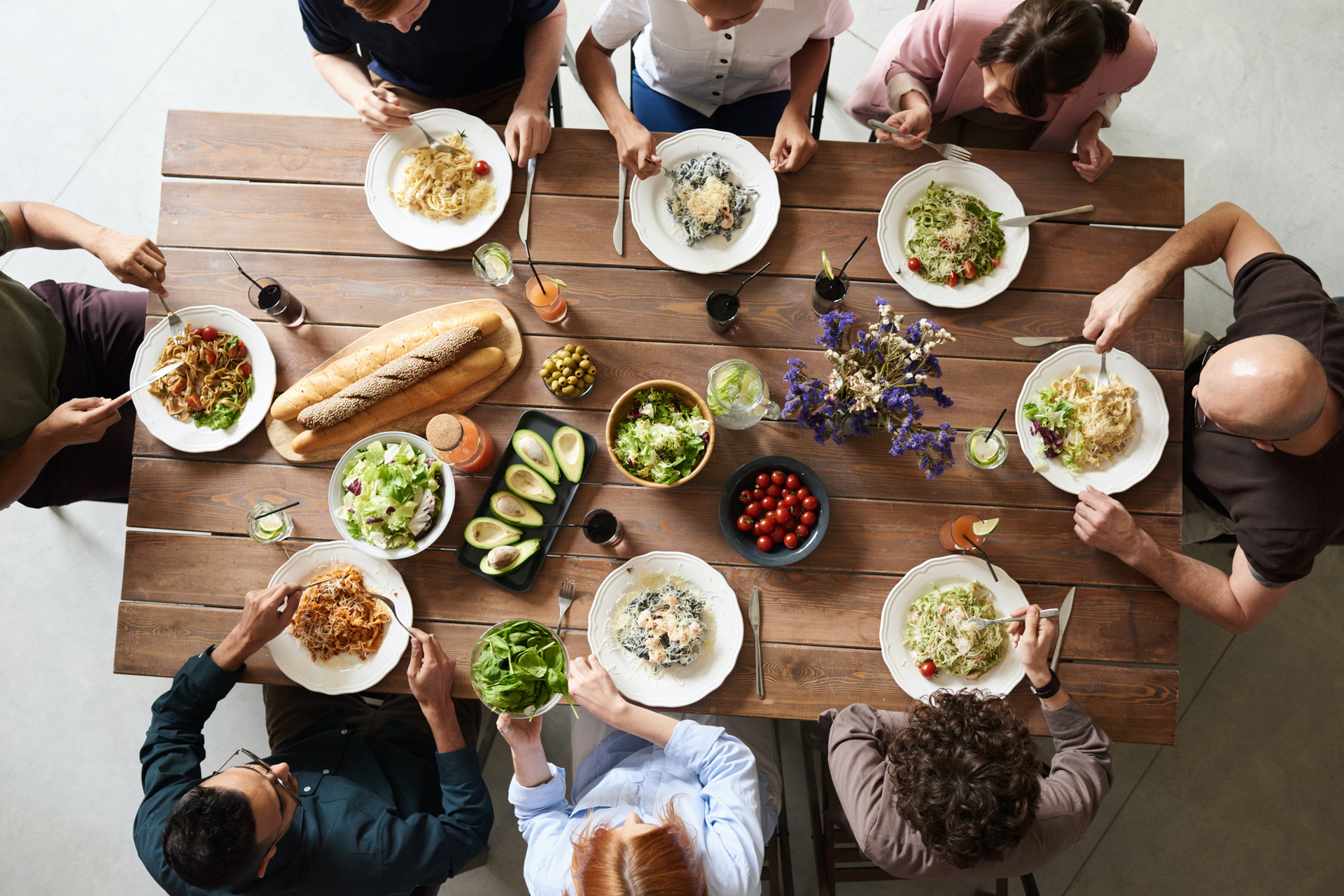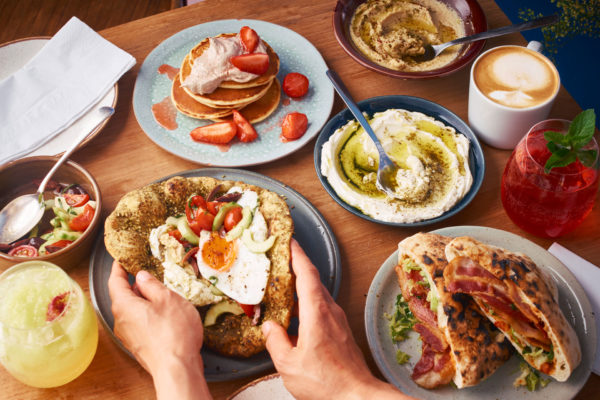The Power Of Food: This New Initiative Explores The Impact Of Food On Our Communities
By
2 years ago
We speak to The SRA's Juliane Caillouette Noble about the organisation's social sustainability campaign

How can food be a force for good? This question is at the heart of a new campaign from The Sustainable Restaurant Association, The Power of Food, which explores how food can inspire positive change within homes and communities. The organisation’s Food Made Good framework is used to explore how restaurants and other culinary businesses fare when it comes to sustainability, and one of the key pillars is social responsibility. Its new initiative focuses on this part. We spoke to Managing Director Juliane Caillouette Noble to find out more.
The Power Of Food Campaign: Why Is It Important?
What is the Power of Food campaign?
#PowerofFood is our summer campaign supported by our global partner HSBC. The aim of the campaign is to celebrate the unique ways in which food can affect positive change in our homes and our communities.
There are two parts to the campaign; during July, the focus was on Food & Family, encouraging people to spend time in the kitchen with their kids this summer and highlighting the benefits of cooking together. The theme for August is Food & Community, showcasing the ways in which food can create opportunities for communities to gather, support one another, share and connect.
The campaign is running across the UK, Hong Kong, Singapore and UAE, and we’ve got some great names on board; people like Georgina Hayden, Chetna Makan, Ben Yeo, Christian Yang, Grace Chan and Shane Osborn, as well as businesses and initiatives like Luminary Bakery and Cantina Hong Kong.
View this post on Instagram
How does the campaign tie in with The SRA’s Food Made Good Framework?
Our Food Made Good Standard and Framework are deliberately designed to take a holistic stance on sustainability. The Framework is built across three key areas: sourcing, social and environment. While the sourcing and environment pillars – things like buying sustainable ingredients, celebrating provenance and seasonality, reducing carbon emissions, minimising water use and tackling food waste – might be the first things that come to mind when you hear the word sustainability, we believe the social one is every bit as important in what it means to be a sustainable business. Two of the focus areas under this pillar are ‘Feed People Well’ and ‘Support The Community’ – each of which aligns perfectly with one part of this campaign.
What is social sustainability?
Social sustainability means taking into consideration the ways in which your business interacts with people – that includes your customers, your staff, your suppliers and your wider community. The importance of social sustainability is underscored by how heavily it features across the UN Sustainable Development Goals; goals like no poverty, zero hunger, quality education and gender equality all fall under this heading.
When it comes to the hospitality industry specifically, we believe restaurants and other foodservice businesses have three key social sustainability responsibilities: to feed people well (with menu options that are nutritious and environmentally friendly as well as being delicious), treat staff fairly (including zero-bullying policies, diversity and inclusivity, fair compensation and work-life balance) and support the community (things like giving to local charities, providing time/skills/resources to members of the local community and making sure your premises is accessible for every customer).
What are some of the ways food can make a difference to society?
Food is so much more than energy and nutrition; it’s also shared culture, tradition and heritage. Food has formed an integral part of what it means to be human since we first started gathering around the fire and sharing the spoils of the day. We talk about ‘breaking bread’ together, and this is a really important part of maintaining our social bonds. Cooking for someone is an act of love.
On a micro-scale, food forms a huge part of how we interact within individual family units. Food provides myriad opportunities to build and strengthen familial bonds, whether it’s spending time preparing meals together or simply sitting down to dinner and talking about our day while we eat. On a bigger level, food has the power to bring communities closer together, pulling us out of our family bubbles to build wider social networks in which we are all better supported.
Community is the focus for August – what are some ways food can help build connections within communities?
Restaurants and other public food spaces are the modern-day equivalent of that ancient tribal fire, and as such have a unique opportunity to have a positive influence on the social fabric of their local areas. Whether it’s hosting events that strengthen social ties, ensuring surplus food is redirected to those in need or offering staff the chance to volunteer at nearby charitable initiatives, there is the potential to do real good, and the effects of that can ripple throughout the community. All of this is possible through the medium of food.

Luminary Bakery
What are some of the ways chefs are creating a positive impact?
One of the businesses we’re highlighting through our Food & Community campaign is Luminary Bakery in London. They work to change the lives of disadvantaged women in their community. Through a bakery training programme, they provide practical skills in a supportive environment, empowering women to create a brighter future for themselves and their families. In 2022 alone, they supported 114 women, awarded 37 accreditations, provided 16 weeks of trauma therapy to 24 women, hosted 1,190 hours of apprenticeship placements and offered 6,820 hours of paid employment to Luminary trainees and graduates. That’s a fantastic example of how something as simple as baking can make a genuine difference in the lives of real people.
Learn more at thesra.org and get involved by following #PowerofFood and @foodmadegood






